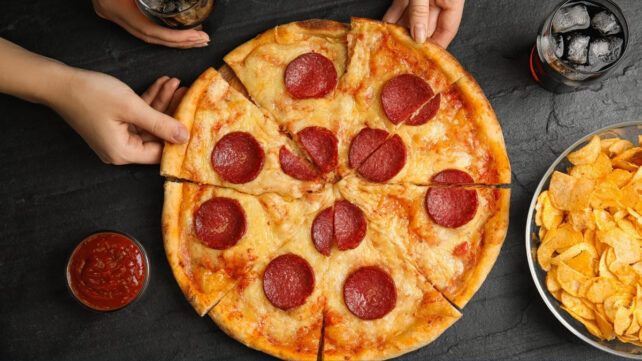Homing in on the junk-food pyramid to rank its most harmful members, researchers from Virginia Tech have discovered that ultra-processed meats and beverages are the worst for brain health.
Individuals who consumed one or more extra servings of either of these foods showed a significantly increased risk of developing cognitive impairments, including those associated with forms of dementia such as Alzheimer's disease.
Using data from the University of Michigan Health and Retirement Study, the researchers tracked 4,750 US residents aged 55 or older to evaluate how their health had evolved over a period of up to 7 years, assessing their cognitive status every two years from 2014 to 2020.
Related: A Daily Diet of Burgers And Pizzas Could Be Putting You at Risk of Alzheimer's
Similar studies have previously explored the adverse effects of ultra-processed foods (UPFs) in general, though researchers had yet to compare discrete categories. The health costs of a diet heavy in UPFs are now known to include obesity, type 2 diabetes, cardiovascular diseases, anxiety, depression, and an increase in all-cause mortality.
Unsurprisingly, diets high in UPFs also have a detrimental impact on brain health. However, a more specific question remained: which specific junk foods were driving these associations, if any?
The answer (sadly, for many) encompasses some of the most-consumed comfort foods known to culinary science: meats and beverages, meaning that a meat-lover's pizza and a cola could combine to create a double brain-bomb.

To test the overall association with cognitive decline, the researchers employed common brain health evaluations. They tested both immediate and delayed recall capacity, along with other assessments such as counting backward or subtracting several numbers in a row.
Overall, 1,363 of the participants developed cognitive impairment. Those who consumed at least one extra serving of ultra-processed animal products per day showed a 17 percent heightened risk of developing cognitive issues.
Sugar-sweetened beverages, such as sodas, iced teas, and sugary fruit drinks, were only a bit less brain-rotting, as individuals who consumed at least one extra serving per day showed a 6 percent increase in the risk of developing cognitive issues.
Interestingly, the study found that total UPF consumption was not significantly associated with an increased risk of cognitive impairment. Neither were other UPFs, such as spreads, sweets, savory snacks, grain- and dairy-based foods, or ready-to-eat meals.
Accordingly, this new research shows that patients have a simple, if not necessarily easy, avenue for protecting their brain health: making dietary changes to avoid ultra-processed meats and sodas.
"There are things that you can change," says Brenda Davy, professor of human nutrition, foods, and exercise at Virginia Tech and the study's co-author. "It's moderation and being reasonable and balanced in your dietary choices."
Related: One Type of Activity Is Particularly Effective at Keeping Your Brain Young
Indeed, the overabundance of junk food may be shocking. About 65 percent of foods and 38 percent of beverages bought by US households in 2020 were considered UPFs, which are characterized by high industrial processing and the presence of artificial colors, flavorings, and emulsifiers – additives that aren't present in home-cooked meals.
Furthermore, both the younger generations and older adults get more than half their daily calories from these UPFs.
The authors suggest cooking classes could offer a crucial healthcare intervention – knowing what to eat, and how to prepare it, can be half the battle when making better food choices.
As Virginia Tech human development scientist Ben Katz concludes, "It's one thing to follow a diet, but it's another thing to give [people] the cooking skills to prepare that diet." So while the junk-food statistics may seem daunting, at least there's a clear and achievable strategy for dealing with decline.
This research is published in the American Journal of Clinical Nutrition.

